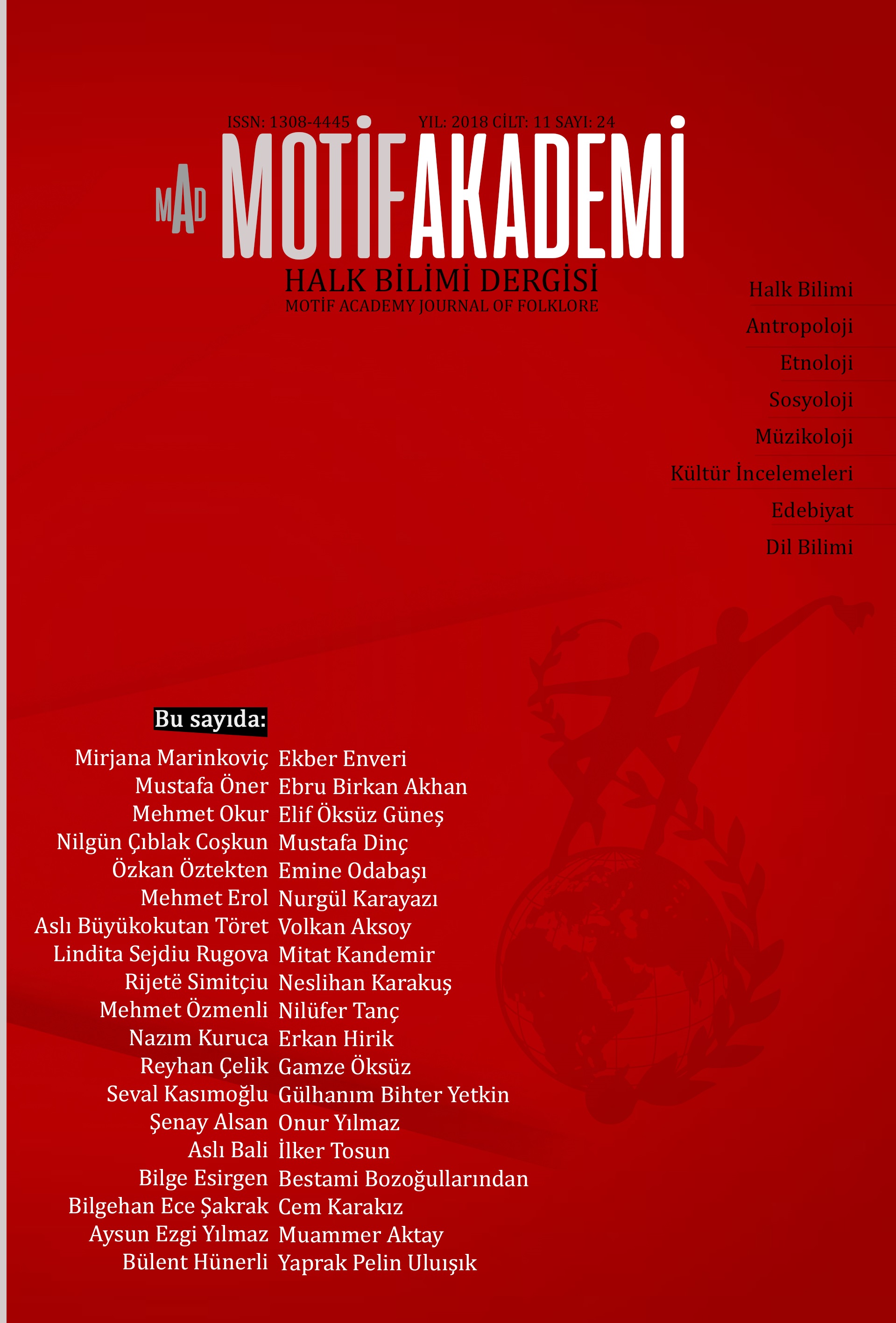TUVA TÜRKÇESİNDE -(I)IşkIn EKİ
- (I)IşkIn SUFFIX IN TUVA TURKISH
Author(s): İlker TosunSubject(s): Theoretical Linguistics, Comparative Linguistics, Philology, Turkic languages
Published by: Motif Halk Oyunları Eğitim ve Öğretim Vakfı
Keywords: Tuvan Turkish; suffix -(I)IşkIn; term; derivation; productivity;
Summary/Abstract: From the beginning of 20th century, science and technology have experienced a great leap. Because of the this Information Explosion, a great number of new terms emerged in this period. Every language has its own ways of deriving new terms. In Turkish language, there are some ways of making new terms: derivation, acronyms, blendings, compundings, borrowings, loan translations (calques), analogy and etc. New terms should be transparent, systematic, consistent, monosemous, context free, actual, economical. Tuvan Turkish is spoken by over 300.000 people in Republic of Tuva, Northhern Mongolia and China. Tuvan Turkish belongs to the Siberian branch of the Turkic languages. The Tuvans have been living under Russian domination since the early 20th century. During the period of the Soviet Union, a plenty of terms about communism and other scientific terms entered the Tuvan language. And also In Tuvan language, there are a plenty of loan words from Mongolian, Russian and other languages and withal new terms can be derived by the aid of some denominal and deverbal suffixes, for example –(I)IşkIn. This deverbal suffix can derive new terms from echo words, loan words and it derive tool names, abstract nouns; it can takes another suffixes from itself. For this reasons, we can accept the suffix –(I)IşkIn is so productive deverbal suffix.
Journal: Motif Akademi Halkbilimi Dergisi
- Issue Year: 11/2018
- Issue No: 24
- Page Range: 282-295
- Page Count: 13
- Language: Turkish

